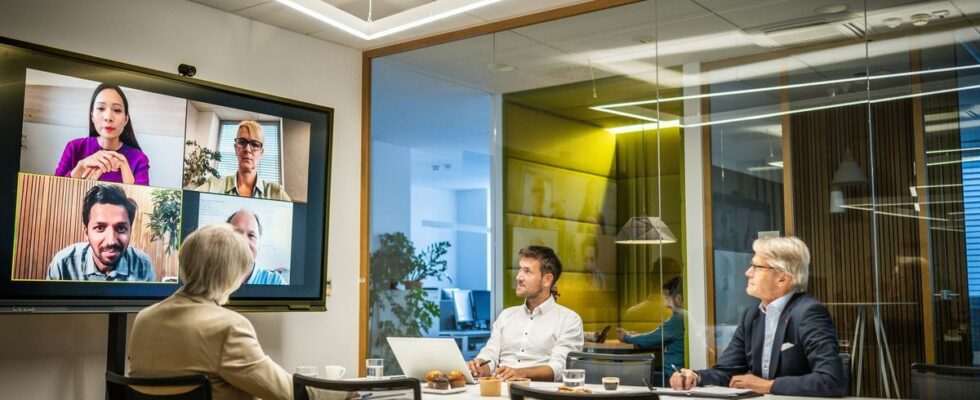Published on
updated on
Reading 2 min.
Four years after the mass adoption of remote work, companies like Amazon and Ubisoft are urging their employees to return to the office in the name of corporate culture and productivity. While some are forcing their employees to work full-time, most are opting for a hybrid organization. A wise choice, according to a recent study on the subject.
Unispace surveyed 8,000 employees and 2,700 business leaders in 13 countries around the world about their work organization preferences. It seems that the hybrid model, which mixes face-to-face and remote work, is winning over employees and their employers. 93% of employees surveyed say they are satisfied with their current hybrid work organization of three days a week in the office. Their bosses are even more likely to express their satisfaction (96%).
In most of the thirteen countries studied, employees and employers seem to be aligned. This is particularly true in India, where 98% of managers and 97% of their employees are happy with their company’s hybrid work policy. Conversely, only 84% of Swiss bosses and 78% of Singaporean workers are satisfied with the face-to-face-remote mix. This is low support compared to the global average.
Some workers are reluctant to adopt a hybrid mode of operation because they see many constraints in face-to-face work. They complain about not being able to concentrate in the office because of the many sources of sound and visual distractions they face, or about not being able to find a quiet corner where they can recharge their batteries between two meetings. The quality of technical and IT equipment (Wi-Fi, computers, printers, etc.) is also often criticized by employees.
Despite this, the overwhelming majority of employees do not think that going to the office should become an obsolete habit. They are aware that this place facilitates the human aspects of work, even if 64% of employees spend most of their time alone at their desk when they are in person. But that does not mean going back every day, especially for young people. Indeed, 18-34 year-olds would like to be in person only 2.7 days a week, compared to 3.4 for those over 55. “Younger employees appreciate remote working and wellness spaces, while their older colleagues prefer traditional office environments and frequent use of face-to-face work,” Unispace analysts explain in their report.
The results of this global survey show how hybrid work is becoming the “new normal”. But, like any transformation, this new organization must be discussed and supervised so that it fits the needs and specificities of each company, but also of their employees. This is how we will truly reconcile the company and the employee.
*Unispace’s “From Restrictions to Resilience” survey brings together the views of 10,700 employees and employers in 13 countries, including France, the United States, the United Kingdom and Hong Kong. The data was collected by Opinium Research between May 11 and 23, 2024.
